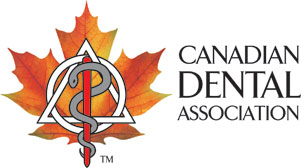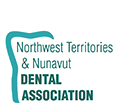May 2, 2022 – Ottawa, ON: Last month, in Budget 2022: A Plan to Grow Our Economy and Make Life More Affordable, the federal government outlined a financial commitment of $5.3 billion over the next five years to increase access to dental care for low-income families. The Canadian Dental Association (CDA) has long advocated for initiatives aimed at improving the oral health of Canadians and welcomed this investment. Today, CDA announced the launch of a virtual conversation series to consult with key oral health stakeholders on how the federal investment can best be applied to improve the oral and overall health of underserved Canadians.
“We applaud the federal budget’s historic investment towards enhancing access to dental care for those who need it most,” says Dr. Lynn Tomkins, the newly elected President of CDA. “We look forward to collaborating closely Health Minister Jean-Yves Duclos, his federal colleagues, and his provincial and territorial counterparts in the coming months to develop an approach that will further narrow the gaps in access to dental care for our underserved populations, while minimizing disruptions for the majority of Canadians who already have dental coverage.”
In partnership with provincial and territorial dental associations, CDA will be collecting feedback from practising dentists across Canada. CDA will also gather the views of other stakeholders in health care, such as allied oral health organizations, dental specialists, dentists providing care to underserved populations, and health policy experts. The first virtual session took place on April 27, and additional sessions are planned over the coming weeks, with the virtual conversation series concluding by early summer.
“These conversations will provide a forum to harness the expertise of dentists and the oral health care sector in Canada, informing CDA’s collaboration with the federal government on its new investment in dental care,” added Dr. Tomkins.
Along with the provincial and territorial dental associations, CDA has long advocated for targeted investments to better support, maintain and expand existing public oral health programs. This would enable these programs to better meet the needs of Canada’s more vulnerable populations, including seniors, children, low-income families, Indigenous Peoples, racialized individuals and persons living with disabilities. These programs have been significantly underfunded and are currently almost exclusively financed by provincial and territorial governments.
As part of its scope of work, CDA uses its national voice to raise issues and concerns facing the dental profession. CDA works diligently to ensure that oral health remains a recognizable and significant public health issue, and informs key decision-makers about matters that directly impact dentistry and the oral health of the Canadian population. Learn more about CDA’s advocacy efforts.
About the Canadian Dental Association
Founded in 1902, the Canadian Dental Association (CDA) is an association that has no regulatory role. It is a federally incorporated not-for-profit organization whose corporate members are Canada’s provincial and territorial dental associations (PTDAs). CDA represents over 21,000 practising dentists nationwide and is a trusted brand and source of information for and about the dental profession on national and international issues.
Quick Facts:
- Dentists and dental offices: There are approximately 25,500 licensed dentists in Canada, operating out of roughly 16,000 dental offices in Canada. That works out to about 65 dentists for every 100,000 Canadians. This ratio has approximately doubled since the 1960s.
- Dental benefits: More than two-thirds (67%) of Canadians report having dental benefits that cover all or part of their dental treatments; roughly 50% of Canadians have employer-provided dental benefits.
- Visiting the dentist: Canadians with health benefits are more likely to visit a dentist (82%) than those without (60%). Regardless of coverage, Canadians with lower household income were less likely to go to a dentist than those in higher income households.
- Dental utilization: Approximately 75% of Canadians saw a dental professional on an annual basis in 2018, one of the highest rates globally among comparable countries.
- Dental expenditures in Canada: In 2019, a total of $16.4 billion was spent on dental care in Canada, with roughly 94% coming from the private sector. This works out to $437 per capita. Overall, this accounts for 6.4% of Canada’s overall health care expenses.
- Public dental care programs: Although public dental care programs exist across Canada, they vary from province to province, and are exclusively funded by provincial and territorial governments. The federal government’s support for dental care is limited to the Non-Insured Health Benefits (NIHB) program for eligible First Nations and Inuit people, as well as some support for hospital-based, surgical-dental services through the Canada Health Transfer.
Media Contact:
Zelda Burt
Head of Communications
Canadian Dental Association
613-523-7963
media@cda-adc.ca











